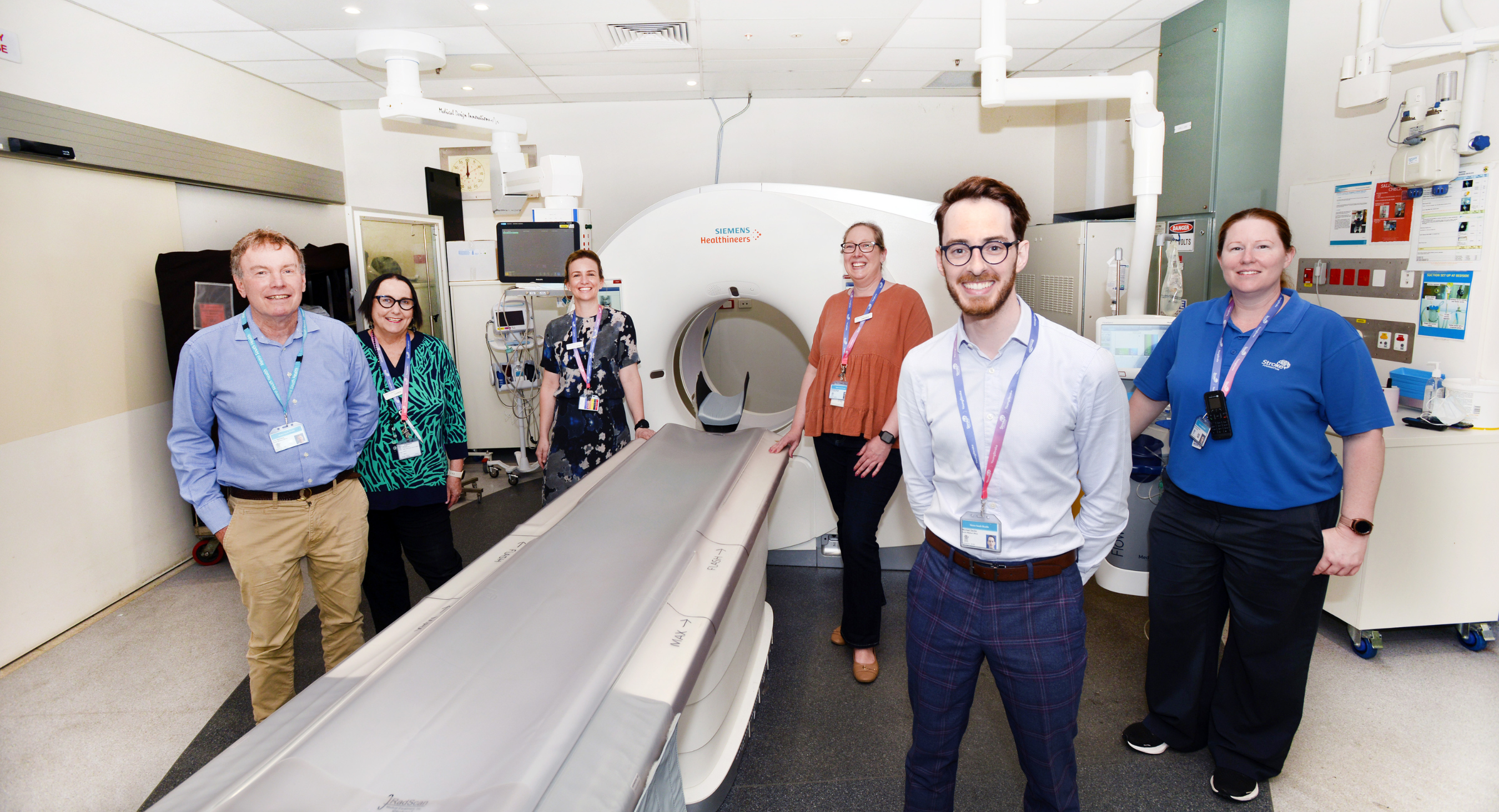
PA Hospital’s Stroke Unit has proven the incredible power of teamwork after being certified as a Comprehensive Stroke Unit (CSU) by the Australian Stroke Coalition on 3 December.
Claiming accreditation for the next four years, PAH is now the second Queensland site to achieve CSU accreditation after GCUH, and one of only seven sites named nationally*.
PA Consultant Neurologist and Stroke Unit Medical Lead Dr Michael Devlin (front right) says the achievement is a testament to the unit’s extraordinary commitment to research, training and advancing stroke care treatment pathways to improve efficiency and enhance patient outcomes.
“This accreditation recognises and endorses our stroke processes, our clinical standards, clear documentation and audit of stroke patients coming to the PA, and it highlights that we have made some significant inroads into timely treatment of stroke,” he explained.
“It also highlights that we are a large volume and endovascular thrombectomy treatment centre, providing a tertiary referral service to over one million people in southern Brisbane and in Southern Queensland.”
“We are a small team for the number of patients that we admit and see on an annual basis, so despite some challenges we're still improving. We also offer quite a comprehensive research programme, trialling the latest acute treatments for stroke, but also novel diagnostic technology and also many new treatments for the prevention of stroke. We're really proud to offer these trials to patients who are interested,” he said.
Dr Devlin led the submission process in collaboration with Stroke CNC Mel Brooks (far right), in a months-long process reflected in the unit’s collective striving for excellence and a number of milestone achievements.
But beyond the walls of the High Acuity Stroke Unit (HASU), Michael says there is a dedicated multidisciplinary team of medical, nursing and allied health specialists who work together to bridge the patient journey from presentation to discharge.
“Delivering care to someone having a stroke is certainly a team effort,” he said.
“It’s not purely a Neurologist’s or Radiologist’s field. Though we’re involved very heavily at the start of someone’s admission, the majority of care is nursing and allied health care, which starts in the acute unit and follows them through rehabilitation and discharge from hospital.”
Between the teams, Michael says it’s an ambitious striving for excellence and a collective commitment to advancing the standard of care that underwrites PA’s success as a CSU.
“We're fortunate that staff who work in stroke are enthusiastic and knowledgeable and constantly wanting to better our service,” he said.
“We're supported by multiple units in the hospital who have invested time and effort and processes into making that patient journey from hospital, from door to discharge door as safe and as quick as possible.”
The small but powerful team is not only reaching, but exceeding national standards thanks to clear and cohesive processes that put excellence at the forefront of care at every stage of care.
Mel says it’s a combination of clinical timeliness, dedicated research, and bedside education that keeps the team at the top of their game.
“Nursing staff feel comfortable to go to those different teams and ask questions, and Michael's always happy to teach by the bedside. Nursing staff and allied health always feel included in the conversation,” she said.
“Our greatest strength as a team is that we're collaborative and we mesh well together. We’ve all got the patient at the forefront of our mind. We want to do the best by the patient, and we want to make sure that we're exceeding the recommended times and doing better than before.”
Congratulations to the whole team on this remarkable achievement and thank you for your commitment to excellence in stroke care.
*Accurate as at time of publication.